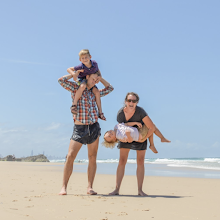Montessori Practical Life: Four Years-Old
This past weekend, I was in Boulder for a Montessori workshop. It was focused on the concept of "Child Study"--bringing teacher teams together to brainstorm strategies for children who are struggling.
We practiced the process with a child who has autism. The presenting teacher talked about how much screen time the child gets at home and how it makes it more difficult to pull the child into reality during the school day.
I definitely try to limit Henry's screen time. I only resort to it if I need to take a nap on the weekend (which, um, is often). I'll pull out the laptop and set him up to watch Caillou, Bob the Builder, or Handy Manny.
Instead of screen time, I try to fill his days with experiences that let him exercise his five senses and have concrete interactions with the world, especially during this stage of development (from 0-6) when is mind is absorbing the environment and constructing itself significantly.
I try to fit in as much practical life as possible. Honestly, Henry really only enjoys practical life that is connected to food, so I take what I can get. On Sunday he was hungry for eggs, so he got out the bowl, eggs, compost, whisk, and apron. It's amazing to see how independent he has become since starting in the kitchen around 18 months of age.
Watching him work just reiterated how important it is to build children's independence in the areas of self-care and practical life. The best form of self-confidence comes from feeling competent.
These kinds of experiences teach so much: multi-step directions, focus, concentration, problem-solving, and critical-thinking. And they result in delicious food!
------------------
REMINDER: The next Purposeful Conception Course: Preparing Your Mind, Body, and Life for Pregnancy starts April 20. Register today! We'd love to have you join us!














6 comments:
I'm curious to know more about the speaker's thoughts on the autistic child. I have to say, I'm a bit perplexed because it seems they were identifying the cause of the child not being pulled into reality to be too much screen time, but difficulty coming into the shared world (which I think the speaker may have been calling reality) is a hallmark challenge for children with autism. My initial reaction is concern that they were misleading a large group of Montessori professionals to believe that screen time is at the root of something that is actually much bigger (the basic nature of autism) and that they may subtly end up blaming the parents for something that is completely out of their control (not screen time but the nature of autism). Also, I'll note that screens are particularly appealing to many autistic children because it provides the visual input that many of them find calming. That doesn't mean that it should be unlimited but it is helpful to look through the lens of sensory processing to get a sense of what the child is seeking/needing. Sensory needs must be worked with, not against. Anyway...I may be reading too much into the one line but I wanted to share these thoughts. I look forward to clarification or conversation! ;-)
Hi, Erin! I didn't represent the conversation well at all because I was stringing tougher random things that I was thinking about. Sorry about that!
The presenting teacher set a goal to try to increase the child's participation in the shared world through engaging activities in the classroom. The comment about screen time at home was just a secondary consideration. We were talking about all aspects of the case to try and brainstorm support strategies.
Also, the need for providing sensory stimulation and soothing was definitely addressed!
So glad to know!! I figured that may have been what happened!
Does your school have any children on the spectrum? I'd love to hear about it/Montessori for special needs kids. In the blogosphere I get the impression that many families have had trouble with private Montessori schools being able to work with their children, which is so ironic considering that Maria Montessori was working with many special needs kids herself!
Hi, Erin! Yes, one of the things we are trying to do with Montessori FOR ALL is show the Montessori community that the same way we can individualize instruction for children academically, we can also do it behaviorally. One amazing resource I've heard about is The Shelton School in Dallas.
At our school, we have two children with identified autism and two more whom we suspect but have not been identified yet.
I also had an autistic child in my classroom when I was a teacher in a public Montessori program. I found it to be a great environment for him. I was able to differentiate to meet his needs.
Can you tell me more about what you mean when you say behaviorally? Also, how do you think Montessori does with helping a child with nervous system regulation, engagement and affect? Or is it more about learning skills... which I tend to think of when I hear behavioral.
That is a really interesting idea to use Montessori school as a way to help a child learn life skills. In a lot of ways young children might be best taught these skills in an academic setting. If I had a disabled child, I would be more focused on life skills.
http://www.montessorialberta.com/about.html
Post a Comment